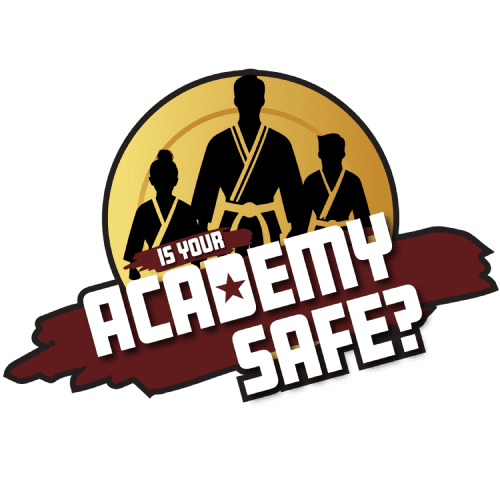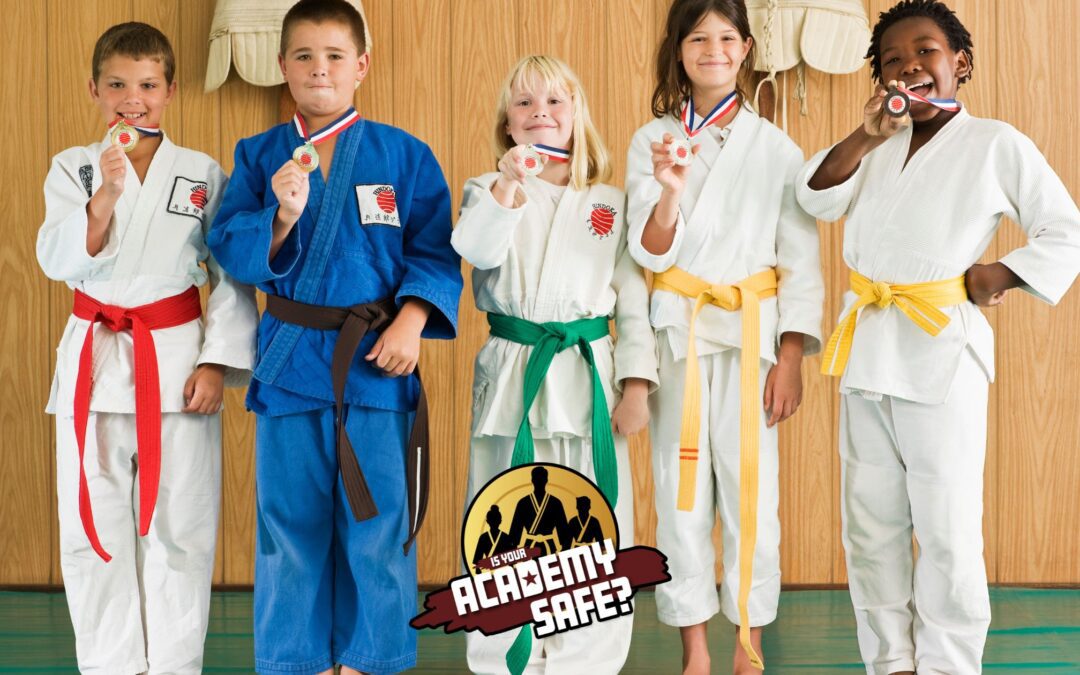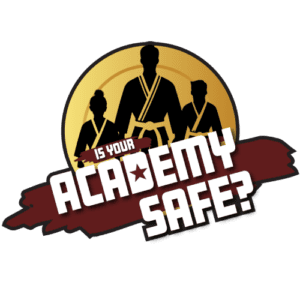When parents search for a martial arts academy, the first question often asked is: “How much will it cost?” While affordability is important, the truth is that safety—not price—should be your first concern.
Not all martial arts schools follow the same safety practices. Some operate without background checks, proper emergency training, or even verified instructors. At Academy Safe, we believe parents should never have to guess whether an academy is safe. That’s why we’ve created a national registry of martial arts academies in the U.S. and Canada that meet strict, non-negotiable standards designed to protect students and support instructors.
Our mission is simple: to keep martial arts safe for everyone. By holding academies accountable, we give parents peace of mind and create safer training environments for children across North America.
What Makes an Academy Safe?
Every academy registered with Academy Safe must meet the following eight essential requirements:
✅ 1. Background Checks for All Staff and Coaches
Safety begins with trust. Every staff member and coach must undergo thorough background checks to ensure a secure environment for students. This step filters out individuals who should not be in positions of authority over children or vulnerable individuals.
✅ 2. U.S. Center for SafeSport Certification
All staff and coaches must be certified by the U.S. Center for SafeSport, which establishes clear standards for preventing abuse, bullying, harassment, and misconduct. This certification empowers coaches to build a respectful, safe training environment.
✅ 3. Concussion Course Training
Martial arts can involve contact, so concussion awareness is critical. Academy Safe requires all staff and coaches to complete our Concussion Course, which teaches how to recognize, respond to, and prevent head injuries—protecting students from long-term damage.
✅ 4. Defibrillators on Premises
Emergencies can happen at any time. Every registered academy must have an AED (Automated External Defibrillator) on-site, ensuring immediate response to sudden cardiac arrest or other life-threatening events.
✅ 5. CPR, First Aid, and AED Certification
Preparation saves lives. All staff and coaches must hold CPR, First Aid, and AED certifications, ensuring they can effectively respond to medical emergencies.
✅ 6. Security Cameras in Training Areas
Transparency keeps everyone safe. All participating academies must install security cameras in key areas to enhance accountability, protect students, and provide parents with peace of mind.
✅ 7. Verification of Belt Ranks and Lineage
Unfortunately, fraudulent instructors are a real issue in martial arts. Academy Safe verifies the belt ranks and lineage of owners, coaches, and staff, ensuring that only qualified martial artists are teaching students.
✅ 8. Comprehensive Business Insurance
Every registered academy is required to carry business insurance coverage, protecting both the school and its students in the event of an accident or liability issue.
Why Parents Must Ask the Right Questions
Parents often start by asking about tuition—but cost should never come before safety. By asking the right questions first—about background checks, SafeSport certification, emergency training, and instructor credentials—you can make sure your child is learning in a safe, trustworthy environment.
How Academy Safe Helps Parents
At Academy Safe, we make it easier for parents to find the right school. Our registry of martial arts academies in the U.S. and Canada includes only those that meet these strict safety requirements. Families can search with confidence, knowing that every listed academy has been thoroughly vetted.
Final Thoughts
Martial arts should build confidence, discipline, and respect—not fear or risk. Parents should never have to choose between affordability and safety. By following this checklist and turning to resources like Academy Safe, families can ensure their children are training in environments that protect their well-being and honor the true spirit of martial arts.
Remember: the most important question to ask isn’t “How much does it cost?” but “How safe is this academy for my child?”


